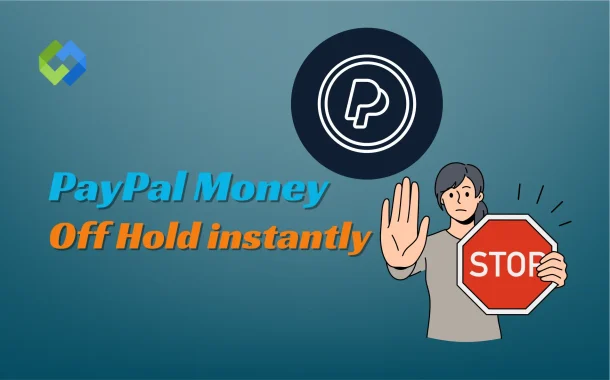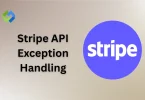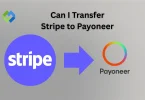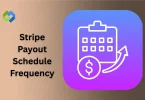Holds can last up to 21 days but may be resolved faster. To release funds, you might need to provide shipping details or complete specific steps. PayPal holds money to prevent fraud, resolve disputes, or verify your account. It helps build trust between parties.
Table of Contents
Table of Contents
Why Does PayPal Hold Funds
PayPal holds funds to ensure that transactions are secure and reliable. These holds protect both buyers and sellers from potential risks like fraud, disputes, or chargebacks. For instance, when PayPal detects an unusual transaction or sees activity from a new seller, it might place a temporary hold to verify the payment’s legitimacy. This helps maintain trust in the PayPal system.
For new sellers or accounts with limited history, holds are common. PayPal uses this time to confirm that sellers fulfill their commitments, such as delivering goods or services as promised. If tracking information isn’t provided or there are delays, the hold might stay longer. High-risk items or industries are also more likely to experience holds.
Disputes, buyer complaints, or refund requests can also lead to funds being held. PayPal steps in to resolve the issue before releasing the money. This ensures buyers get what they pay for while giving sellers a fair chance to resolve concerns.
By holding funds temporarily, PayPal minimizes risks for all parties. While these holds can be inconvenient, understanding why they happen can help you manage them effectively and speed up the process for releasing your money.
Types of PayPal Holds
PayPal has different types of holds to ensure secure transactions and prevent disputes.
1. Payment Holds for Goods and Services
This type of hold is common for new sellers or those dealing with high-risk items like electronics or luxury goods. PayPal holds the money until the buyer confirms receipt or tracking information shows successful delivery. The hold can also apply if a seller experiences a sudden increase in sales or transaction amounts. This ensures the buyer is satisfied with their purchase before funds are released to the seller.
2. Dispute-Related Holds
Disputes, chargebacks, or buyer complaints can lead to this type of hold. PayPal freezes the funds involved to protect the buyer and ensure a fair resolution process. Sellers are required to provide evidence, such as tracking numbers or communication with the buyer, to resolve the issue. Funds are released only when the dispute is settled, often favoring the party that provides clear proof.
3. Account Verification Holds
These holds occur when your account has incomplete or outdated information, such as missing tax details or unverified email addresses. PayPal may also apply this hold if it detects unusual activity, like logging in from a new location. Funds remain on hold until you provide the required documentation, such as identity verification or proof of address, to secure your account and comply with PayPal policies.
Steps to Get PayPal Money Released Instantly
1. Fulfill Order Requirements
Make sure you meet PayPal’s conditions for releasing funds. Ship products quickly and accurately, and provide tracking information. If selling digital services, mark the order as complete after the buyer confirms the service is delivered. Meeting these requirements can speed up fund release.
2. Update Tracking Information
Add tracking details directly to the transaction in your PayPal account. This helps PayPal verify that the buyer has received their order. Once tracking shows successful delivery, the hold is often removed within 24-48 hours.
3. Mark Services as Completed
If you provide services instead of physical products, use the “Mark as Complete” option in PayPal. Notify the buyer to confirm receipt of the service. PayPal reviews the confirmation to decide if the hold can be lifted.
4. Resolve Disputes Quickly
Address buyer disputes or issues immediately. Respond to PayPal’s requests for evidence, such as proof of delivery or communication with the buyer. Promptly resolving disputes increases your chances of having funds released sooner.
5. Communicate with Buyers
Encourage buyers to confirm receipt of goods or services in their PayPal account. Their acknowledgment helps PayPal release funds faster, especially for high-value or custom transactions.
Best Practices to Avoid PayPal Holds
1. Maintain a Positive Account History
A strong account history builds trust with PayPal. Avoid disputes, chargebacks, or refunds by consistently delivering quality products or services. Regular transactions without issues signal reliability and reduce the chances of holds.
2. Provide Accurate and Transparent Information
Ensure that your account details, such as address, phone number, and email, are up to date. When listing products, give clear descriptions and accurate pricing. Transparency builds buyer trust and minimizes complaints, which can lead to holds.
3. Use Tracking and Shipping Services
Always provide tracking information for shipped items. Use reputable shipping carriers that offer reliable tracking updates. This helps PayPal verify deliveries and reduces the chances of payment delays.
4. Communicate Effectively with Buyers
Maintain open communication to address concerns promptly. If buyers trust you and provide positive feedback, disputes are less likely. Encourage them to confirm receipt of goods or services, which helps release funds faster.
5. Avoid Sudden Changes in Transaction Activity
A sudden increase in sales volume or high-value transactions may trigger a hold. Scale your sales gradually, and inform PayPal of any planned changes in your business activity. This helps prevent unexpected holds on your funds.
Conclusion
Getting PayPal money off hold quickly requires following clear steps. Ensure you meet order requirements, provide tracking details, and communicate with buyers. Address disputes promptly and use PayPal tools like “Mark as Complete” to speed up the process.
To avoid future holds, maintain a positive account history, provide accurate information, and use reliable shipping methods. Gradual sales growth and open communication with buyers also help. By understanding PayPal’s policies and taking proactive measures, you can minimize delays and access your funds faster.














